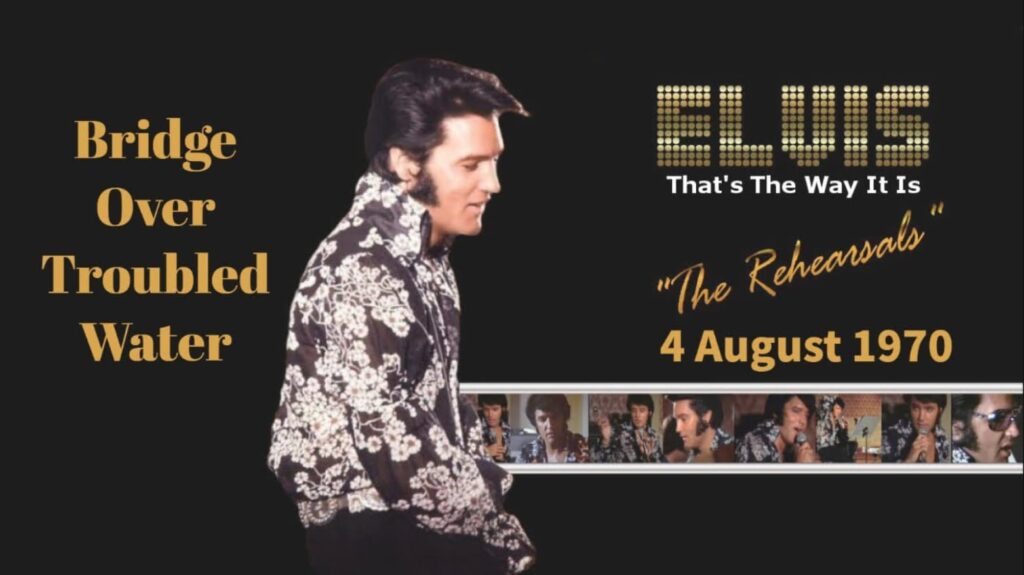
An anthem of unwavering support and comfort in times of despair.
It’s a strange thing, isn’t it, how certain songs become intertwined with the very fabric of our lives? They’re more than just melodies and lyrics; they’re markers of time, emotional anchors that transport us back to a specific moment, a specific feeling. For many, Elvis Presley’s rendition of “Bridge over Troubled Water” is one such song. It’s a track that, when you hear it, doesn’t just play in the background; it demands your full attention, a quiet moment of reflection. While the iconic original by Simon & Garfunkel is the one most people remember, there’s a profound weight and a different kind of beauty to the version that The King delivered. Released in 1970 on the album of the same name, “Bridge over Troubled Water” served as the title track of Simon & Garfunkel’s final studio album. It was a massive success, but Elvis’s cover, released on his 1972 album, “Elvis Now”, breathed new life into the composition, making it his own.
In a year where Simon & Garfunkel’s original was dominating the charts, reaching the top spot on the Billboard Hot 100, Elvis’s version didn’t quite achieve the same commercial peak. It was released as a single in some parts of the world, but in the United States, it was primarily an album track, a hidden gem on an album that featured a diverse array of songs. Despite this, its impact wasn’t measured in chart positions. For many fans, this rendition was a testament to Elvis’s evolving artistry. By the early 1970s, Elvis was no longer the rebellious, hip-swiveling heartthrob of the 50s. He had matured, both as a person and as an artist, and his voice had acquired a deeper, more resonant quality. This is particularly evident in his performance of “Bridge over Troubled Water”. He sings it not with the youthful angst of a rock-and-roller, but with the wisdom and soulful depth of a man who had seen and experienced a great deal.
The story behind this song, and Elvis’s connection to it, adds another layer of poignancy. The original was written by Paul Simon in a moment of personal reflection and was inspired by gospel music. It was a song of reassurance, a promise to be there for someone in their darkest hour. Elvis, a man whose own life was a whirlwind of fame, loneliness, and spiritual searching, likely found a deep, personal resonance in these lyrics. His mother Gladys, a devout woman who instilled in him a love for gospel music, had passed away years before, and it’s easy to imagine him channeling the spiritual comfort and unwavering love of a mother in his performance. When Elvis sings, “I’ll be your bridge over troubled water,” it doesn’t feel like a simple promise; it feels like a solemn vow, delivered with an almost spiritual conviction. He turns the song into a gospel-infused ballad, with a powerful vocal performance that builds from a quiet, tender beginning to a soaring, majestic finale.
“Bridge over Troubled Water” in Elvis’s hands becomes an anthem of hope and resilience, a reminder that even in the face of life’s most turbulent storms, there is a source of strength and comfort to be found. It’s a beautiful, almost heartbreakingly sincere performance that showcases a side of Elvis that many people forget: not the showman, but the sensitive, soulful artist. It’s a song that speaks to the shared human experience of pain and the profound comfort of knowing you’re not alone. Hearing it again today, it’s not just a song; it’s a memory, a gentle and powerful echo from a bygone era, reminding us of the enduring power of music to heal and to connect us.